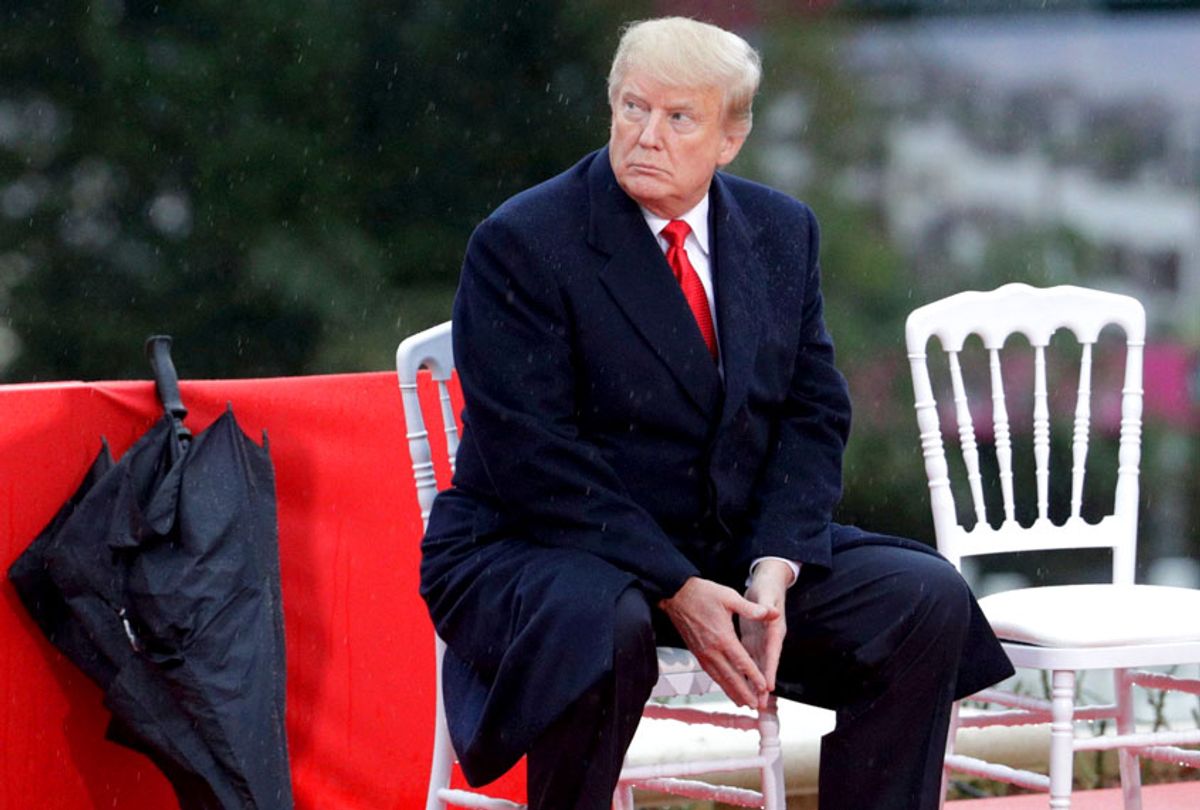Three top Democrats issued a warning to President Donald Trump on Sunday, saying he cannot "discourage, intimidate or otherwise pressure" witnesses in response to public comments the commander-in-chief made this weekend about the father of Michael Cohen, the attorney who spent many years working as his personal "fixer."
"The integrity of our process to serve as an independent check on the executive branch must be respected by everyone, including the president," Reps. Elijah Cummings (D-Md.), Adam Schiff (D-Calif.) and Jerrold Nadler (D-N.Y.) said in a joint statement from the chairmen of the House Oversight, Intelligence and Judiciary Committees.
"Our nation's laws prohibit efforts to discourage, intimidate or otherwise pressure a witness not to provide testimony to Congress," the lawmakers added. "The president should make no statement or take any action to obstruct Congress’ independent oversight and investigative efforts, including by seeking to discourage any witness from testifying in response to a duly authorized request from Congress."
The congressmen were responding to comments made by Trump during an interview with Fox News host Jeanine Pirro as he reacted to the news of Cohen's upcoming testimony before the House Oversight Committee. Cohen is scheduled to publicly testify before the committee on Feb. 7 about his admitted role in buying the silence of women, who alleged affairs with his former boss and future president, during the 2016 presidential election.
Trump told Pirro on Saturday that Cohen "should give information maybe on his father-in-law, because that’s the one that people want to look at."
"Because where does that money — that’s the money in the family. And I guess he didn’t want to talk about his father. He’s trying to get his sentence reduced," Trump added. "So it’s pretty sad. You know, it’s weak, and it’s very sad to watch a thing like that. I couldn't care less."
Asked by Pirro to provide the name of Cohen's father-in-law, Trump responded, "I don't know, but you'll find out. And you'll look into it, because nobody knows what's going on over there."
In December, Cohen was sentenced to three years in prison by U.S. District Judge William H. Pauley III for orchestrating the hush money payments. He also pleaded guilty to financial crimes, campaign finance violations and lying to Congress about a since-abandoned Trump Tower project in Moscow, including the extent of Trump's involvement. Cohen alleged that Trump was personally aware of the deal, signing a letter of intent and discussing it with Cohen on two other occasions.
Cohen's sentencing was unusual, because it involves guilty pleas that he made in two separate cases: one brought by prosecutors in New York over tax evasion, bank fraud allegations and campaign finance violations; and a later one by the team of special counsel Robert Mueller, who is investigating Russian meddling in the 2016 presidential election. The investigation into Cohen's business dealings placed him under immense pressure in the Southern District of New York, while Mueller continued his separate investigation. (Some of the evidence incriminating Cohen was reportedly uncovered by Mueller's investigators, who then handed it over to federal prosecutors.)
Trump and his legal team have attempted to downplay the crimes in which Cohen implicated the president. According to the president, Cohen deserves a "full and complete" sentence. At first, Trump denied having the affairs, which he later acknowledged. Last month, he insisted that the hush-money payments to women were "a simple private transaction" rather than a violation of campaign finance law. He also said that, even if the hush-money payments were campaign transactions, any failure to obey federal election regulations should be considered only a civil offense — not a criminal one.



Shares